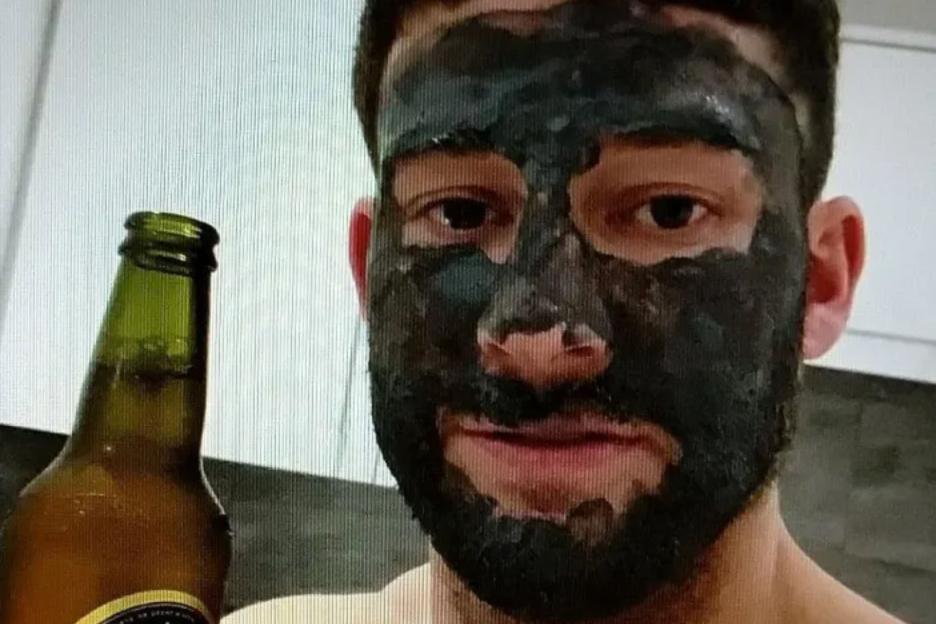WHEN you think of a spy, you might imagine trench coats and secret dossiers, or perhaps the more glamorous image of vodka martinis and Aston Martins.
But one Baltic nation has taken a more practical approach, issuing a handy guide on how its citizens can spot Russian operatives lurking in their midst.
 Federal security service officers guarding the Russian President Vladimir Putin
Federal security service officers guarding the Russian President Vladimir Putin The aftermath of a Russian firestorm in Ukraine’s Sumy region
The aftermath of a Russian firestorm in Ukraine’s Sumy region Some of the characteristics to look out for in a spy
Some of the characteristics to look out for in a spyOne of Latvia’s intelligence services has put out a list of telltale signs to help its population sniff out spies.
An unkempt appearance and “insufficient hygiene”;; are listed as some of the top characteristics to look out for â a far cry from the crisp dinner jackets sported by James Bond.
But don’t expect all Russian spies in the Baltic state to look like they have been sleeping in a bush.
A military-style haircut is also a possible indicator that you might be face-to-face with a secret agent.
Perhaps unsurprisingly, asking nosy and intrusive questions of locals is also listed as something to look out for.
And tourists who have little knowledge of the area but are surprisingly well-prepared for the great outdoors â such as with medical kits or radios â are also a big red flag.
The Defence Intelligence and Security Service(MIDD) has issued the list of characteristics this week to urge its citizens to be alert to threats and regional tensions.
The agency said: “The Ukrainian experience shows that Russian special services are able to adapt to the environment and circumstances in which reconnaissance-saboteur groups are used.
“Their members may not visually correspond to the classic reconnaissance-saboteur profile.”;;
Such Russian spies might also hang around near sensitive sights â or sleep in remote areas despite showing little interest in nature.
But the agency warned citizens not to get their hands dirty with vigilante spy work â and to leave any action to the professionals.
They made clear that if any suspicions are flagged, the police and military should take it from there.
The agency said: “If you do think you might have spotted a sabotage group on Latvian soil, MIDD does not recommend tackling them yourself.
“Instead report your suspicions to the State Police, special services, or the nearest armed forces unit.”;;
 Wreckage of an MH17 plane shot down by Russia
Wreckage of an MH17 plane shot down by Russia Fire blazes at the site of the wreckage
Fire blazes at the site of the wreckageThis comes as tensions between NATO countries and Russia continue to soar over Putin’s barbaric and brutal invasion of Ukraine.
Sweden and Finland â both of which joined NATO since 2022 â have been busily issuing booklets on how to survive a war or other disaster.
Norway has also published a book with advice for such a scenario.
The book reads: “We live in an increasingly turbulent world.
“Even though in Norway most things generally function as they normally would, we must remain aware that extreme weather, pandemics, accidents, sabotage â and in the worst case acts of war â can impact us.”;;
Several instances of sabotage and arson across the west have been attributed to Russia by senior figures â although the Kremlin denies involvement.
today for the first time in three years in Turkey.
But even if a ceasefire is agreed, to a worrying capacity as early as 2027.
And the International Institute for Strategic Studies has cautioned Putin could deploy hisarmyonto a “war footing”;; and try to test NATO’s Article 5 mutual defence agreement.
 Russian President Vladimir Putin
Russian President Vladimir Putin






